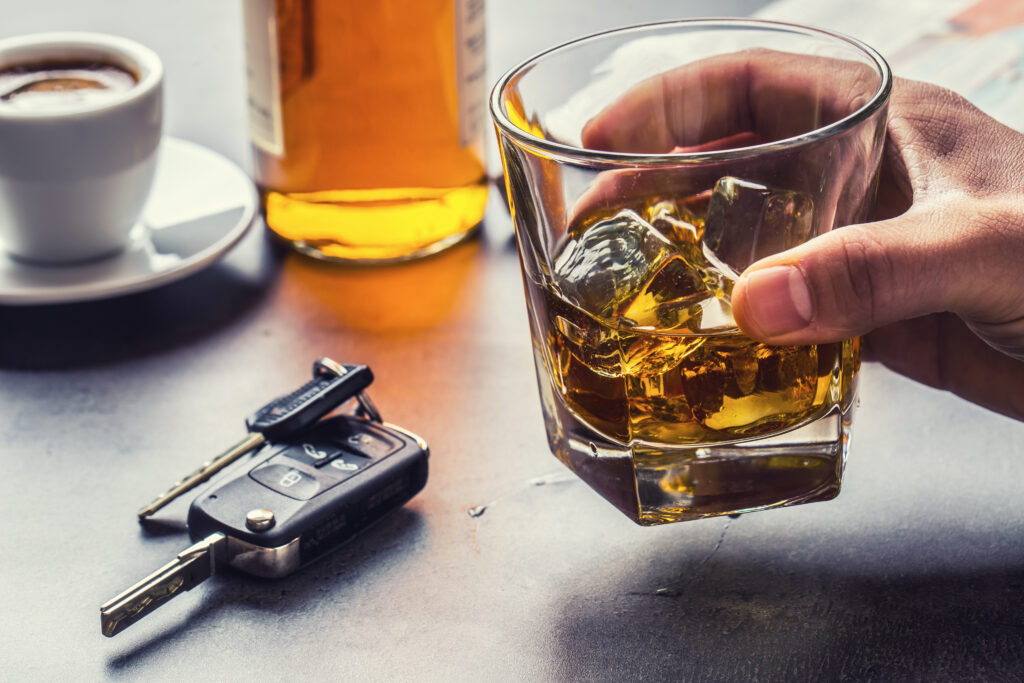
Although drinking and driving is illegal in all 50 states, it still continues to occur at an alarming rate and with devastating results. In fact, an estimated 30 percent of all traffic crash fatalities that occur in the U.S. involve drunk drivers. It is, however, possible for those who lose loved ones in these kinds of tragic accidents to hold the at-fault driver legally accountable.
How Alcohol Affects Driving Ability
Ingesting alcohol reduces brain function and impairs thinking, reasoning, and muscle coordination, all of which are critical to the safe operation of a vehicle, which is why it’s unlawful to drive with a Blood Alcohol Concentration (BAC) of .08 or higher. It is not, however, necessary for someone to have this high of a BAC to be dangerous behind the wheel. For instance, in 2020, 2,041 people were killed in alcohol-related accidents where a driver had a BAC of between .01 and .07. Typical effects of driving while under the influence include:
- A decline in visual functions, like the ability to track a moving target;
- A decline in the ability to perform two tasks simultaneously;
- Reduced coordination;
- Difficulty steering;
- A reduced response to emergency situations;
- Problems with speed control;
- Reduced information processing capability, such as problems with signal detection and visual search; and
- Problems maintaining lane position and braking properly.
These types of effects make it much more likely that a person will cause an accident, which can have devastating consequences for anyone else unfortunate enough to be on the road at the same time.
Demonstrating Liability
Car accident victims who are injured by drunk drivers can attempt to recover compensation for their losses by filing a civil lawsuit against the driver. These cases are not the same as criminal suits, which, if they result in a guilty verdict, will end with the defendant facing jail time and the creation of a permanent criminal record. Civil suits, on the other hand, aim to make victims “whole” by awarding monetary judgments to compensate them for accident-related losses. For this reason, the burden of proof that plaintiffs must meet is much lower. Rather than having to prove that a motorist was driving drunk beyond a reasonable doubt, a claimant need only prove it by a preponderance of the evidence, or that it is more likely than not, that a defendant was under the influence at the time of the accident. To establish this, plaintiffs can provide proof of:
- The other driver’s breathalyzer results;
- The police report drafted after the crash;
- The testimony of the law enforcement officers who arrested the defendant;
- Photos from the scene of the accident;
- Testimony from the eyewitnesses who saw the accident occur; and.
- Video footage of the accident from security or traffic cameras.
Accident victims who can provide this evidence could be entitled to wrongful death damages on their loved one’s behalf.
Recovering Wrongful Death Damages
Those who lost relatives in a car accident caused by a drunk driver and who file successful wrongful death cases could recover a damages award compensating them for:
- The victim’s medical bills;
- The victim’s lost income and benefits;
- The victim’s pain and suffering;
- Funeral and burial costs;
- The surviving family members’ emotional trauma; and
- The survivors’ loss of companionship.
Only certain relatives are allowed to file wrongful death claims in Florida, namely the decedent’s personal representative, who can sue on behalf of the victim’s:
- Spouse;
- Children;
- Parents; and
- Dependent family members.
Claimants also have a finite amount of time to file a wrongful death claim in Florida, where the statute of limitations for these kinds of civil cases is two years from the date of the victim’s death. Claimants who miss this deadline will be barred from pursuing a wrongful death case on their loved one’s behalf unless they satisfy one of the few statutory exceptions.
Available to Answer Your Questions 24 Hours a Day
Losing a loved one unexpectedly is one of the worst things that a family can go through, especially when that death was preventable and caused by someone else’s carelessness. While it is possible to hold drunk drivers accountable for the accidents they cause, doing so can be complicated, especially for a family that is already grieving. At Dolan Dobrinsky Rosenblum Bluestein, our dedicated and compassionate Miami wrongful death lawyers can help pursue your family’s legal case, while you focus on your recovery. Call us at 305-371-2692 to set up an initial consultation. We answer messages 24 hours a day, so don’t hesitate to reach out to us by phone or online message at your earliest convenience.